One trip to a pharmacy or grocery store is all it takes to realize there are many different types of toothbrushes you can choose from. There’s no question that choosing the right toothbrush plays an important role in your overall oral health by preventing cavities and other issues, but if you don’t have some insider information, it’s easy to make a wrong decision. Keep reading to discover how to choose the right toothbrush for your teeth and some valuable information about the most common types of toothbrushes on the market.
Electric vs. Manual
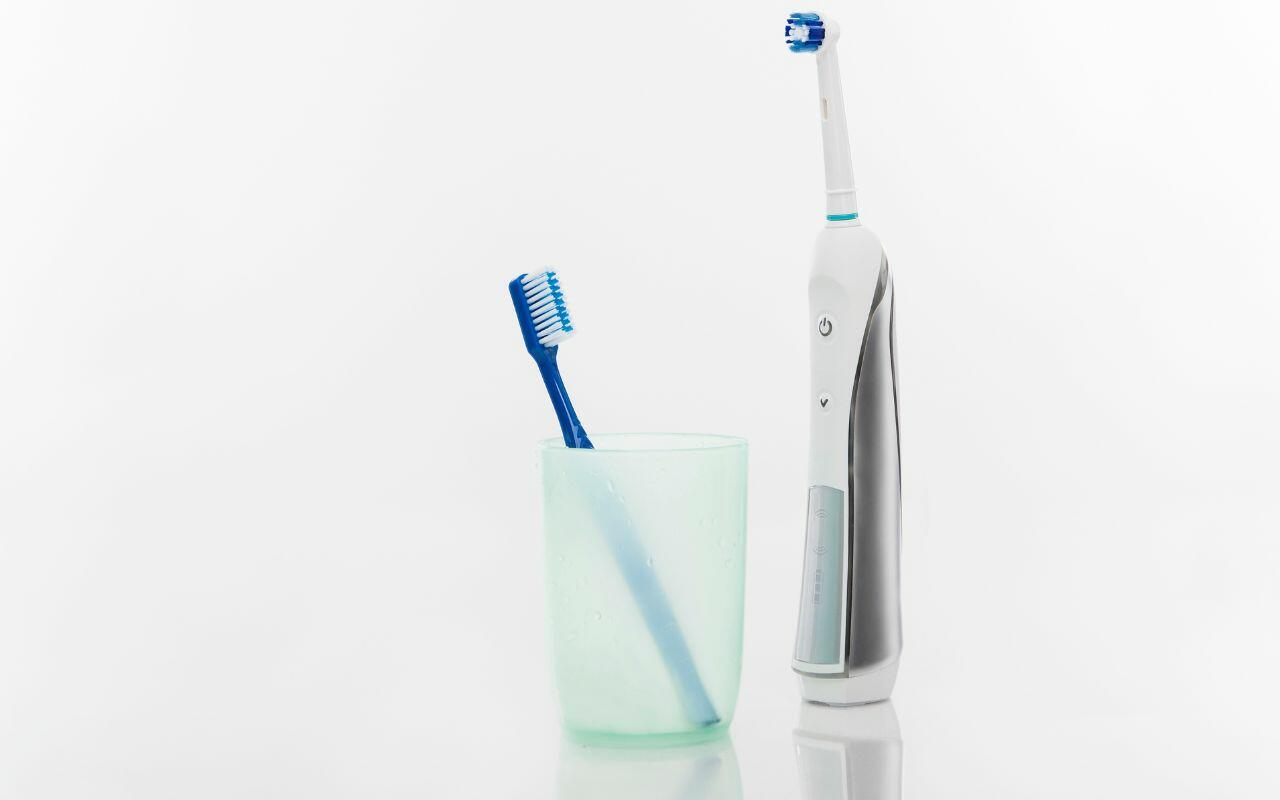
One debate you may find yourself in before you make any decision about choosing the right toothbrush is whether you should opt for an electric toothbrush or a manual toothbrush. As the name suggests, the best electric toothbrush doesn’t require you to do the brushing yourself, as the bristles move on their own, and you just have to position them on your teeth.
There is scientific evidence to prove the claim that electric toothbrushes are superior to manual toothbrushes. One study that took 11 years to complete found that electric toothbrushes, especially the ones that have heads that rotate in both directions, are highly effective when it comes to removing plaque. The Journal of Clinical Periodontology also found that electric toothbrushes resulted in more than 20% less gum recession and 18% less tooth decay over that same 11-year period.
Electric toothbrushes cost more than manual toothbrushes, but if you think of them as an investment in your oral health, the decision becomes much easier. Keep in mind that if you do choose an electric toothbrush, you still need to brush at least twice a day and for two minutes per session.
Best Brushing Technique
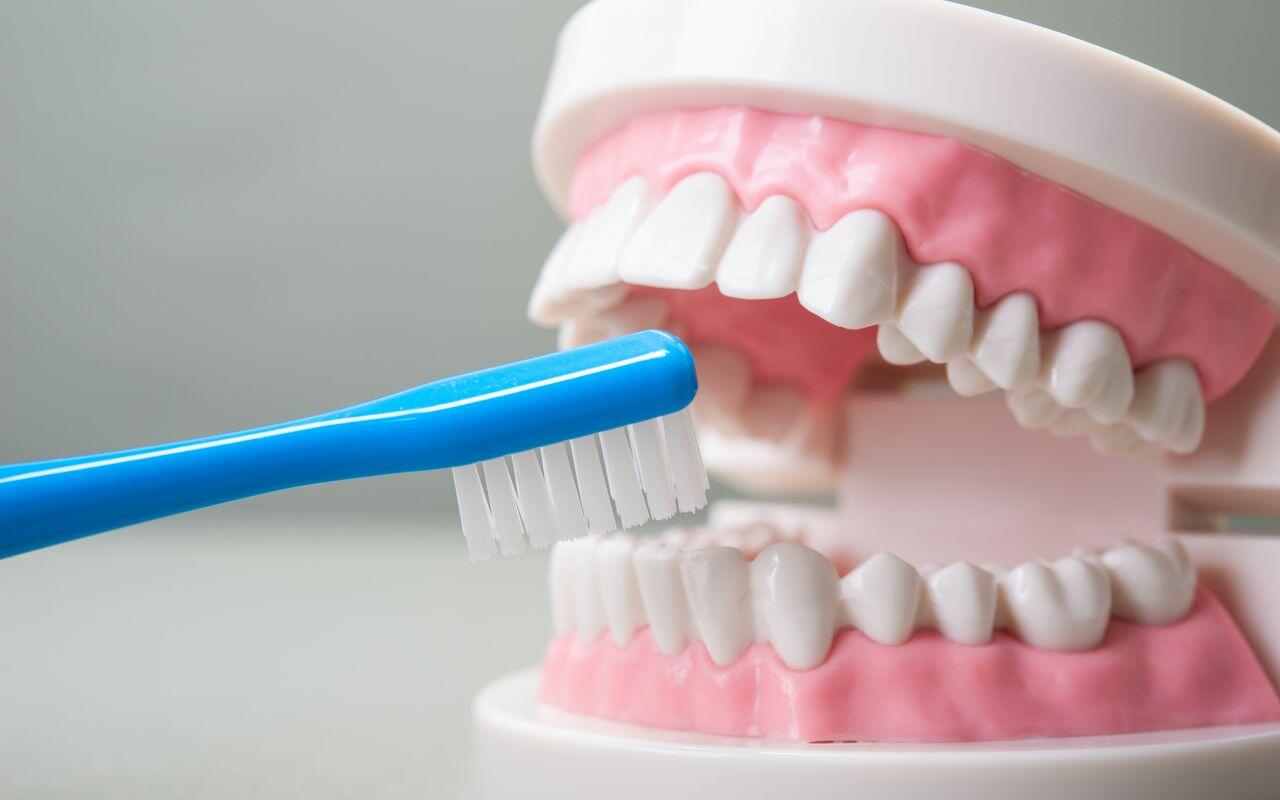
There’s been a lot written about technique as it pertains to brushing your teeth, and there is definitely a right and wrong way to do it. Here are some tips on the best brushing technique to use for excellent oral health:
- Hold your toothbrush and place it at a 45-degree angle to your gums
- Gently move the brush back and forth in short strokes, about the width of a tooth
- Make sure to brush the outer surface, inner surface, and the chewing surfaces of all your teeth
- Use up and down vertical strokes to clean the inside surfaces of your front teeth
When To Get A New Toothbrush
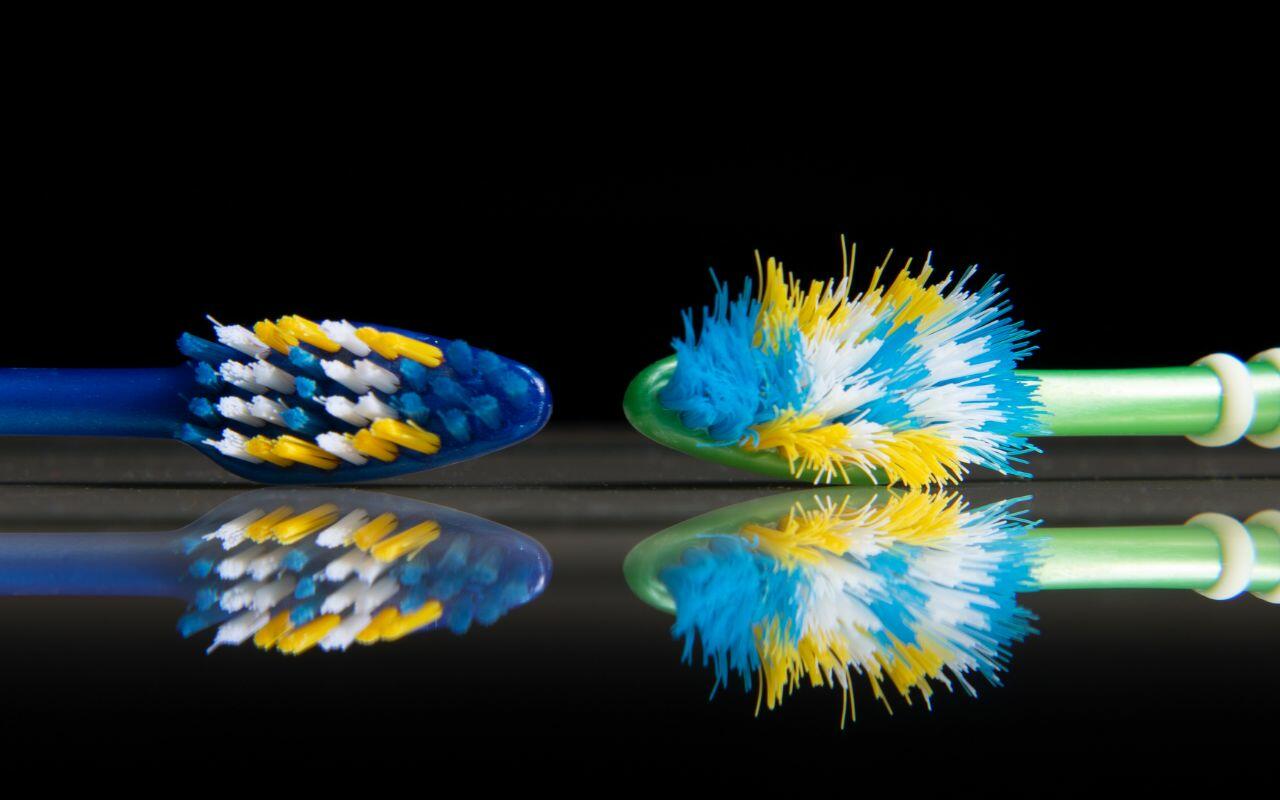
It’s not uncommon for people to keep using the same toothbrush for far longer than they should. When the bristles become frayed and ragged looking, there is no way you should still be using the toothbrush. Frayed bristles won’t clean the surface of your teeth the same way, which could lead to plaque buildup and other issues.
A good guideline to follow when it comes to replacing your toothbrush is to start using a new one every three to four months. Of course, you should always change your toothbrush if you notice the bristles are frayed, even if it’s before that three-to-four-month time frame. If you find you’re replacing your toothbrush every one or two months due to bristle damage, you may be brushing too vigorously.
Maintaining Your Toothbrush
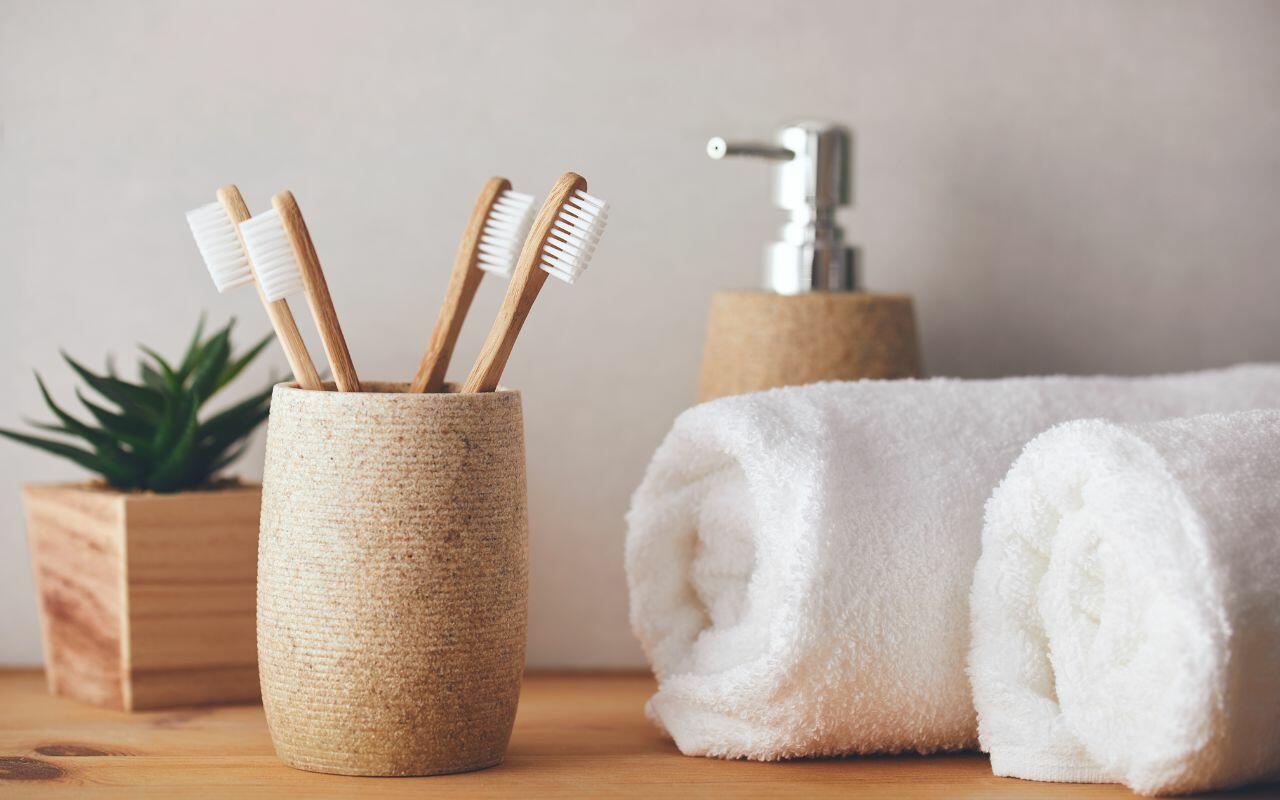
Choosing the right toothbrush and then keeping your toothbrush clean and sanitary is an important part of good oral health. After each use, rinse your toothbrush under clean water thoroughly to remove any debris and remaining toothpaste. You should store your toothbrush in an upright position and allow it to air dry to avoid microbial growth that can occur when you store a moist toothbrush in a closed container. The last thing you want is bacteria growth on the bristles that you’ll be putting into your mouth twice a day. When travelling, consider using disposable toothbrushes during the trip, or at the very least, store it upright in a cup or other container.
Which Bristle Toothbrush Is Best
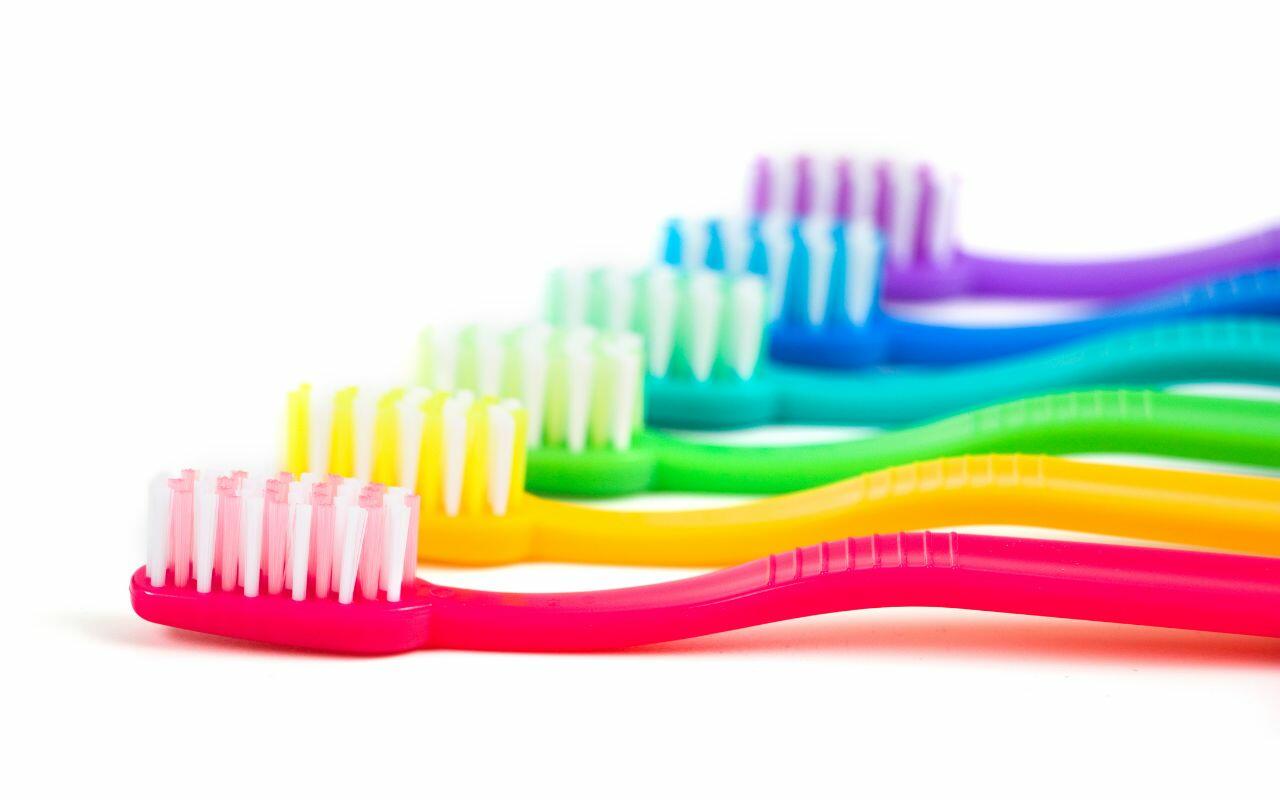
The type of toothbrush bristles you use is often a point of contention, although the majority of dentists recommend using soft bristles for most people. Here’s a bit of information about each type of toothbrush bristles:
Soft bristles – Soft-bristled toothbrushes are stiff enough to dislodge any debris that’s stuck between your teeth, but they aren’t so hard that they will end up damaging your enamel. You can also clean your gumline with soft bristles without any bleeding or discomfort, so if you aren’t sure, opt for soft so you can get the full effect without any negative results.
Medium bristles – Medium toothbrush bristles are not that different from soft bristles, but they are hard enough to damage your enamel, especially if you brush vigorously. Medium bristles usually can’t be used to clean the gumline effectively because they’re too abrasive and may cause damage to the soft tissue.
Hard bristles – If you haven’t been specifically directed by your dentist to use hard bristles, then you should probably avoid them. The bristles on a hard toothbrush are noticeably stiffer than soft and medium bristles, and they can wear away your enamel with regular use. They can also lead to a receding gum line by damaging soft gum tissue. If you need to use a hard-bristled toothbrush, make sure to brush slowly and gently.
Extra Dental Care Tips
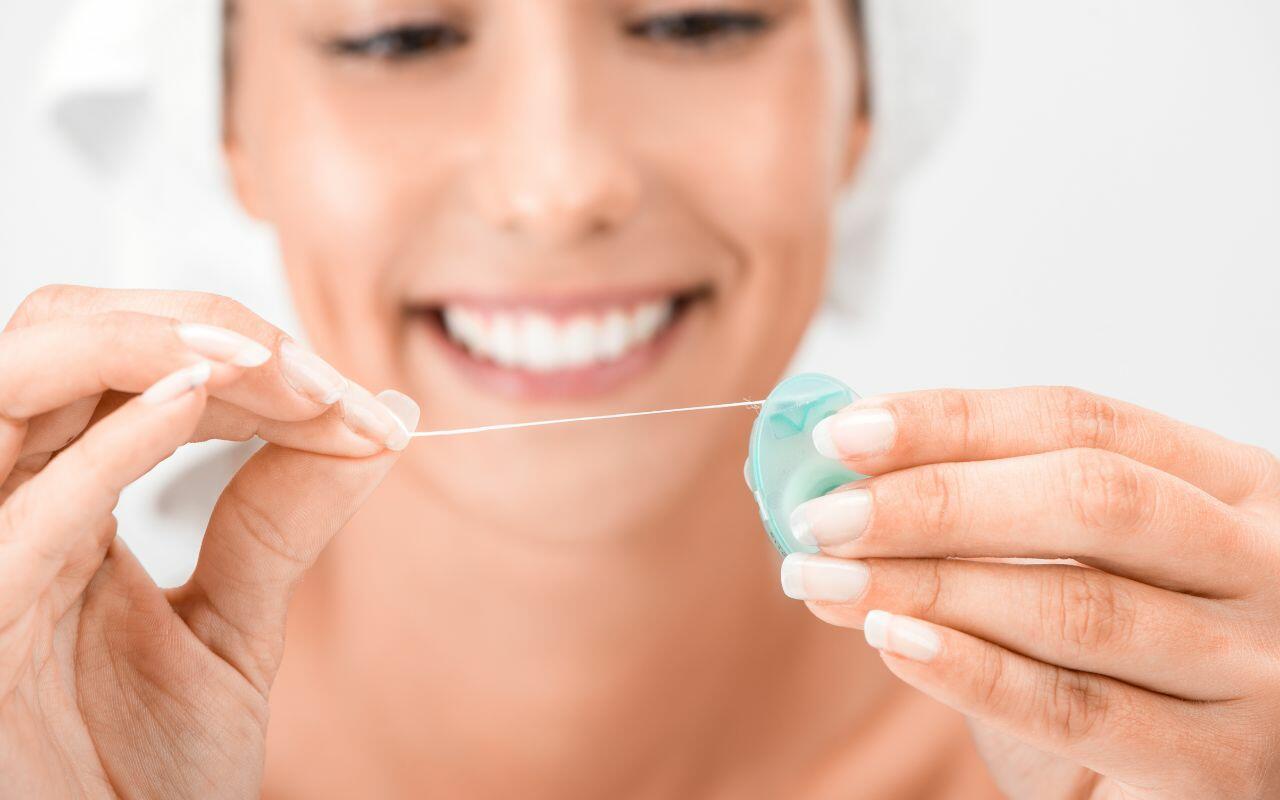
Choosing the right toothbrush is a crucial element in overall oral health, but it isn’t the only part of an effective dental care routine. Some other important tips include:
- Cleaning between your teeth at least once a day with dental floss or a similar tool
- Eating a healthy diet that limits sugary drinks and snacks
- Visiting your dentist regularly for checkups and cleanings to prevent any problems
Choosing the right toothbrush is a great first step to magnificent oral health, but you have to remember to be consistent and make brushing your teeth a regular part of your daily routine. It’s only when you’re diligent and take regular action that you’ll get the results you want.
For more tips on choosing the right toothbrush or general dental care, call today to schedule an appointment at 905-775-5307 or click here to request an appointment.
